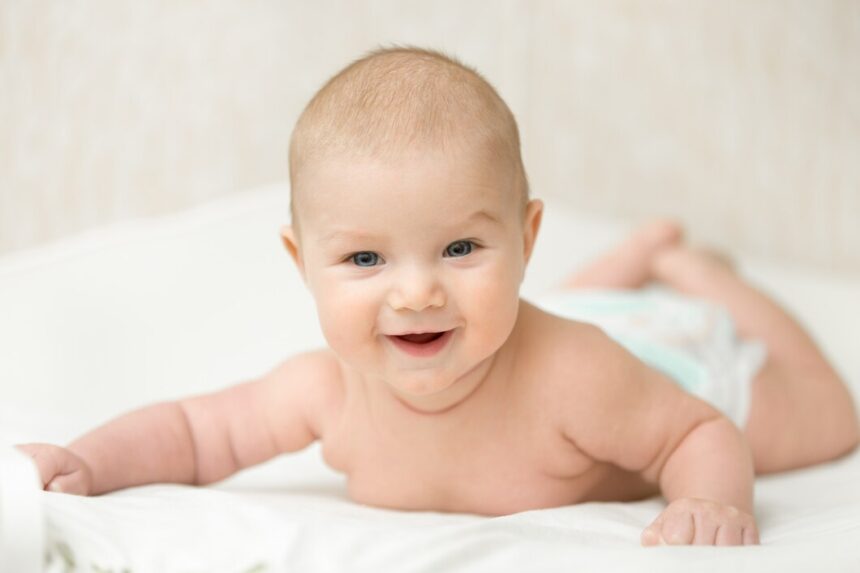As your baby reaches the 7-month mark, you’ll likely notice a significant leap in their development. At this age, infants typically experience a series of physical, cognitive, and social-emotional milestones that showcase their growing skills and personality. Understanding these milestones can help you support your baby’s development and ensure they’re on the right track. Here’s a detailed look at what you can expect from a 7-month-old baby.
Physical Development
1. Improved Motor Skills:
By seven months, many babies have better control over their movements. They might be able to sit up without support for longer periods, often using their hands to stabilize themselves. Some may begin to show signs of crawling or scooting, using their arms to pull themselves forward or rocking back and forth on their hands and knees.
2. Fine Motor Skills:
Your baby’s hand-eye coordination is improving. They can transfer objects from one hand to another, bang toys together, and explore objects with both their hands and mouth. This is a crucial period for developing the pincer grasp, where they use their thumb and forefinger to pick up small objects.
3. Teeth Development:
Many babies start teething around this age, leading to drooling and a tendency to put everything in their mouth to soothe their gums. The first teeth, usually the lower central incisors, often begin to emerge.
Cognitive Development
1. Object Permanence:
Your baby is beginning to understand the concept of object permanence—the idea that objects continue to exist even when they can’t be seen. You might notice them looking for a toy that’s been covered by a blanket or showing delight in games like peekaboo.
2. Cause and Effect:
Seven-month-olds are starting to grasp the idea of cause and effect. They enjoy actions that produce a response, such as shaking a rattle to make noise or dropping toys to see you pick them up.
3. Memory:
Their memory is improving, allowing them to recognize familiar faces and objects. They may show excitement when they see a favorite toy or a familiar person after a short absence.
Social and Emotional Development
1. Increased Interaction:
Babies at this age enjoy social interactions and may start to show preference for familiar people over strangers, a behavior known as stranger anxiety. They will likely respond to their name and engage in back-and-forth exchanges of sounds and gestures with caregivers.
2. Expressive Babbling:
Your baby’s babbling becomes more complex and expressive, often including a variety of sounds and syllables. They might mimic the tone and rhythm of adult speech, an early step toward language development.
3. Emotional Expression:
You’ll notice a wider range of emotions. They might laugh during play, show frustration when a toy is out of reach, or express joy when interacting with loved ones. Their personality traits become more apparent as they interact with their environment and people around them.
Tips to Support Your Baby’s Development
- Encourage Movement:
Create a safe space for your baby to practice moving. Place toys just out of reach to motivate crawling and exploring. - Stimulate Senses:
Provide a variety of textures, sounds, and visuals. Toys that make noise, brightly colored objects, and textured books can all help stimulate your baby’s senses. - Interactive Play:
Engage in games like peekaboo and pat-a-cake. Read to your baby regularly, even if they don’t seem to understand the words yet; the rhythm and intonation are beneficial. - Establish Routines:
Consistent daily routines can provide a sense of security and help your baby develop a predictable sleep and feeding schedule. - Encourage Socialization:
Spend time with other caregivers and family members to help your baby get used to different people, which can ease stranger anxiety.
Every baby develops at their own pace, and it’s important to remember that these milestones are general guidelines. If you have concerns about your baby’s development, consult your pediatrician. By providing a nurturing environment rich in opportunities for play and exploration, you can help your 7-month-old reach these exciting milestones.










